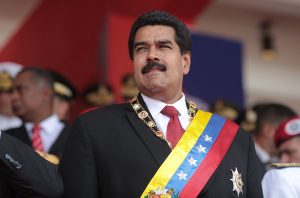
EspañolIt is often said that Venezuela is already on the verge of a social explosion. In recent months, the scarcity of commodities such as food, medicine and toiletries has worsened while inflation has hit an all-time high, leaving the monthly salary of most workers more or less destroyed.
People are unhappy. Looting of trucks and shops — as well as crowds turning aggressive in the streets — have become commonplace. But this is not enough for a true “social explosion,” a movement that is capable of making Nicolas Maduro’s unpopular government fall for good.
For such a thing to happen, two conditions need to take place in Venezuela: a more or less comprehensive and structured organization of the population against Maduro, and a political leadership that has the firm intention of ending the government’s abuse of power.
The first condition does not exist because the sectors that oppose Maduro today and feel desperate about the situation are people from all walks of life — and they incapable of organizing.
The opposition, on the other hand, is a set of groups that are coordinated in the MUD (Democratic Unity Roundtable), which only succeeds in obeying the limitations the regime itself has imposed. Their solution is the recall referendum. But even if he loses the referendum, Maduro will surely be replaced by someone from within his own administration.
MUD doesn’t take into account that the regime has all the levers of power and, therefore, may delay the referendum by bureaucratic procedures until it becomes virtually inconsequential.
Clasping to legal and over-hyped solutions to chavismo, the opposition protest, try legal remedies, appeal to international organizations and even try to negotiate with the regime. But they never really take action.
What’s going to happen then? Riots and looting, of course. But it is very unlikely these can be organized and focused to the point of bringing down the regime. Their forces aren’t big or well-equipped enough.
The referendum, moreover, cannot be realistically held this year, and diplomatic initiatives only serve to help Chavez’s heirs buy time.
The government may well hold out a bit longer, hoping that oil prices rise again so they can maintain control of the situation.
Drowned by hunger and scarcity, beset by the indecision of their leaders and government repression, Venezuelans are slowly approaching the fate Cubans have endured for decades.
 Versión Español
Versión Español












